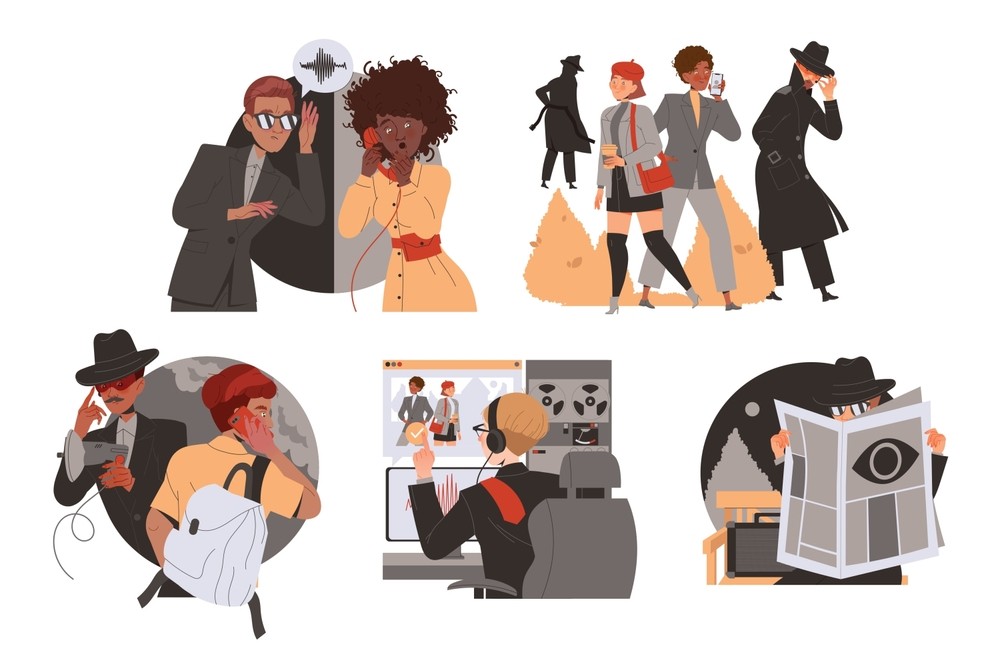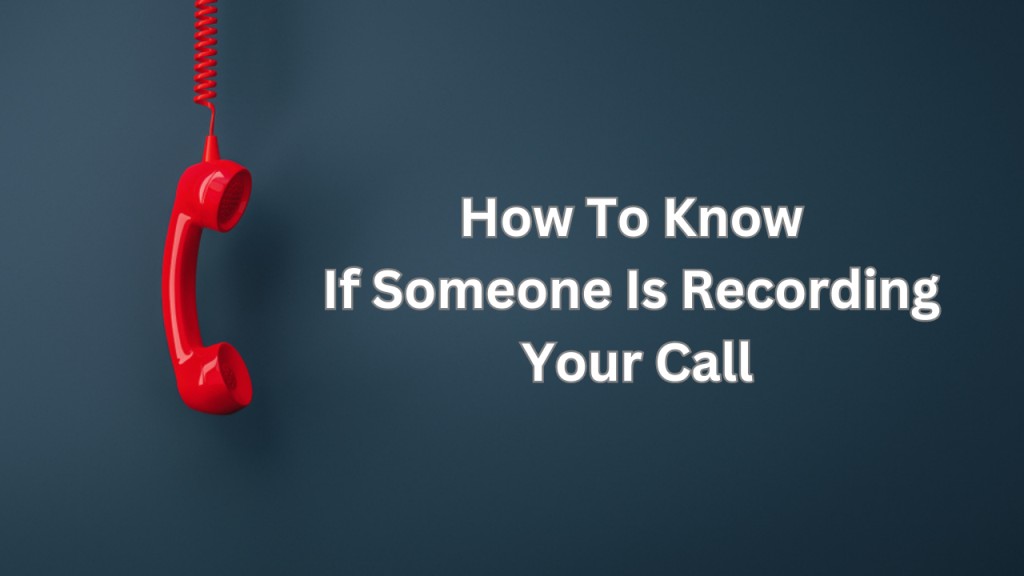Have you ever wondered if someone is recording your phone call without your knowledge or consent? This can be a serious invasion of your privacy and a violation of your rights. In this article, we will explain how to know if someone is recording your call, what are the legal implications of call recording, and how to protect yourself from call recording.
Signs That Your Phone Call May Be Recorded
There are some signs that may indicate that your phone call is being recorded by the other party. These include:
- Unexplained beeping sounds or tones during the call. These may be caused by a recording device or software that is connected to the phone line or the device itself.
- Sudden and frequent background noises or echoes. These may be caused by a poor connection or interference from a recording device or software that is capturing the audio from both sides of the conversation.
- Announcement or message at the start of the call. Some recording devices or software may play an automated message or a beep at the beginning of the call to notify both parties that the call is being recorded. However, this may not always be the case, as some recorders may be silent or discreet.
- Suspicious behavior or questions from the other party. If the person you are talking to asks you to repeat yourself, to speak louder, to confirm your identity, or to provide personal or sensitive information, they may be trying to record your voice or obtain evidence for some purpose.
How to Check If Your Call is Being Recorded?

If you suspect that your call is being recorded, there are some ways to check if your suspicion is true. These include:
- Ask the person directly. The simplest and most straightforward way to find out if someone is recording your call is to ask them directly. You can say something like “Are you recording this call?” or “Do you mind if I record this call?” and listen for their response. If they say yes, you can decide whether to continue or end the call. If they say no, you can ask them why they are making those noises or behaving suspiciously.
- Use call recording detection apps. There are some apps that can help you detect if your call is being recorded by analyzing the audio signals and frequencies of the call. Some examples of these apps are Call Recorder Detector, Call Recorder Spy Detector, and Call Recorder Protection. However, these apps may not be 100% accurate or reliable, and they may not work with all types of phones or networks.
- Conduct a test call with a trusted friend. Another way to check if your call is being recorded is to conduct a test call with a friend who you trust and who agrees to record the call with their own device or software. Then, you can compare the audio quality and characteristics of both recordings and look for any differences or anomalies that may indicate that your call was also recorded by someone else.
- Listen for unusual noises or delays in conversation. As mentioned earlier, some recording devices or software may cause some noises or echoes during the call that may alert you that something is wrong. Additionally, some recording devices or software may cause some delays in the conversation due to processing or transmission issues. If you notice any of these signs, you may want to end the call and contact the person through another channel.
Legal Implications of Call Recording
Call recording is not illegal per se, but it depends on various factors such as who is recording, why they are recording, where they are located, and whether they have obtained consent from all parties involved in the call. In general, there are two types of laws regarding call recording in the United States: federal and state laws.
- Federal laws regarding call recording. According to federal law, it is legal to record a phone call as long as one party consents to it. This means that you can record a phone call if you are a participant in the conversation or if you have obtained permission from one of the participants. However, this does not apply to interstate or international calls, which may be subject to different laws depending on the jurisdiction.
- State laws regarding call recording. Each state has its own laws regarding call recording, which may be more strict than federal law. Some states require two-party consent, which means that all parties involved in the conversation must agree to be recorded. Other states require one-party consent, which means that only one party needs to consent to be recorded. Some states also have specific exceptions or regulations for certain situations such as business transactions, emergencies, court orders, etc.
- Consent requirements for recording calls. Consent is a key factor when it comes to legalizing call recording. Consent can be either explicit or implied. Explicit consent means that the person clearly and verbally agrees to be recorded before or during the call. Implied consent means that the person does not object to being recorded after being notified by an announcement, a message, a beep, etc. Consent can also be revoked at any time during the call by saying something like “I don’t want this call to be recorded” or “Please stop recording this call”.
- Penalties for illegal recording. Illegal recording of phone calls can have serious consequences for both civil and criminal cases. Depending on the state law and the circumstances of the case, illegal recording can result in fines ranging from $100 to $10,000 per violation, imprisonment for up to 5 years, lawsuits for damages and injunctions, and exclusion of evidence in court proceedings.
Ways to Protect Yourself from Call Recording
If you want to protect yourself from unwanted or unauthorized call recording, there are some steps you can take to prevent it or minimize its impact. These include:
- Use encrypted communication channels. One of the best ways to protect yourself from call recording is to use encrypted communication channels such as Signal, WhatsApp, Telegram, etc., which use end-to-end encryption technology that prevents anyone from intercepting or accessing your calls without your permission.
- Avoid disclosing sensitive information over the phone. Another way to protect yourself from call recording is to avoid disclosing any sensitive information over the phone such as passwords, bank account numbers, credit card numbers, social security numbers etc., which can be used for identity theft or fraud purposes by malicious actors who may record your calls without your knowledge or consent
- Declare that you don’t give permission for recording. A third way to protect yourself from call recording is to declare that you don’t give permission for recording at the beginning or during the call by saying something like “I don’t consent to this call being recorded” or “This call is private and confidential” This way you can establish your position and intention and deter or challenge any potential recorders who may violate your rights or privacy
- Report any suspicions or violations to the authorities. A fourth way to protect yourself from call recording is to report any suspicions or violations to the authorities such as law enforcement agencies or regulatory bodies who can investigate and prosecute any illegal recorders who may harm or harass you with their recordings
Conclusion
Call recording can be a useful tool for various purposes such as documentation, evidence, education, or entertainment, but it can also be a dangerous weapon for privacy invasion, rights violation, identity theft, or fraud if done without proper consent, authorization, or justification. Therefore, it is important to know how to know if someone is recording your call, what are the legal implications of call recording, and how to protect yourself from call recording. We hope this article has helped you understand these topics better and has given you some useful tips and advice on how to deal with them effectively.


